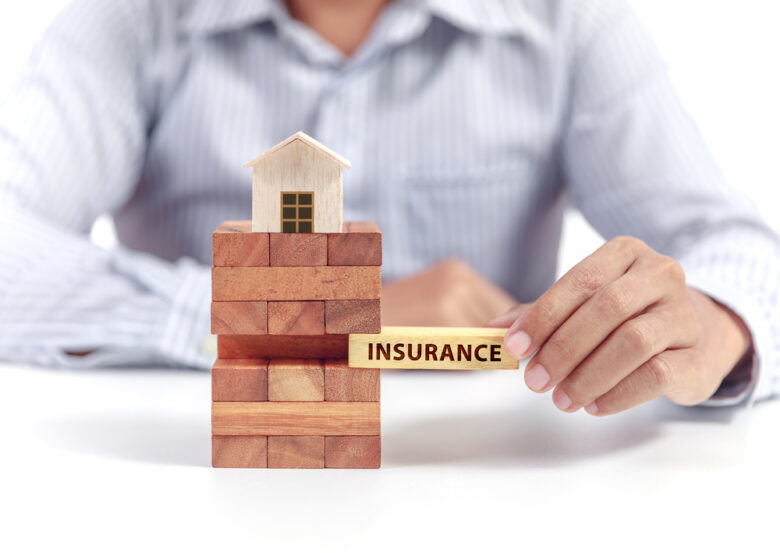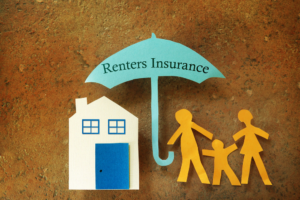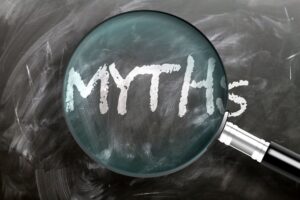Taking out home insurance is important to protect your land and property. But there are some common myths about homeowners insurance that can lead to confusion and inadequate coverage. Let’s break down these misconceptions about home insurance and help you understand what it should cover and how to ensure your safety.
Myth 1: Home Insurance Covers All Types of Damage
Many people wrongly believe that home insurance covers all types of damage, regardless of the cause. Many people think that their insurance covers all kinds of losses, even damages resulting from natural disasters, accidents, or even not taking proper care of their property. In fact, home insurance policies have limitations on what is and is not covered. For instance, damage from earthquakes or floods is typically not covered unless you purchase additional insurance. To ensure your home is properly secured, you need to know these restrictions.
Myth 2: The Risk Value Must Be the Same as the Market Value
It is also believed that the amount of your home insurance coverage should be equal to the market value of your home. Market value tells you how much your home is worth, but it doesn’t take into account how much repairs will cost. Your insurance should cover replacement costs, which are the costs of building a new home from scratch. Make sure your coverage is equal to the cost of replacing lost items so that your coverage is not too small and provides you with adequate protection in the event of a total loss.
Myth 3: Home Insurance Isn’t Necessary Without a Mortgage
Some people think that home insurance is only necessary if you have a mortgage. There are risks to this way of thinking. Even if you own your home outright, home insurance is important to protect yourself from extensive repairs if something bad happens to it. If you don’t have insurance, you will have to pay for any repairs or replacements, which can be very expensive. Whether you have a mortgage or not, keeping your home insurance up to date is important to protect your property and finances.
Myth 4: All Your Personal Assets Are Protected
Many people think that home insurance covers everything, including their belongings. Your home insurance policy will cover your personal belongings, but highly valuable items such as gold, art or collectibles may not be covered. You may need additional insurance or endorsements to adequately protect these expensive items. Ensuring that everything you own is properly protected means checking your insurance and considering adding extra coverage for valuables.
Myth 5: Damage from Normal Wear and Tear is Covered
The idea that home insurance covers damage resulting from normal wear and tear is also incorrect. Home insurance is intended to cover damage that occurs quickly or accidentally, not for problems that arise as a result of planned maintenance or slow wear and tear. For example, if your roof leaks because it is old and not maintained, your policy may not cover it. Repairs and maintenance must be carried out on time and regularly to avoid problems that can cause costly damage.
Myth 6: Making a Claim will Always Increase Your Premiums
Many people think that their insurance rates will always increase when they file a claim. It is true that some insurance companies may increase rates after a claim, but this does not always happen. Insurance companies handle claims differently, which can have a different impact on your rates. Before filing a claim, consider the potential long-term benefits and costs. In some cases, it may be better to file a claim for significant losses than to pay out of pocket.
Myth 7: All Home Insurance Policies Are the Same
Some people think that all types of home insurance cover the same things. In fact, different policies can differ significantly in what they cover, what they don’t cover, and how claims are handled. It is important to read and compare the plans carefully to understand what they do and do not cover. A good insurance agent can help you find a policy that meets all your needs and gives you complete protection.
Myth 8: Renters Don’t Need Homeowners Insurance
People often think that only landlords need insurance, not renters. Renters insurance is just as important because it protects your property and reputation. Renters insurance, which is usually cheaper than homeowners insurance, protects your valuables from loss or damage and shields you from liability in the event of an accident.
Myth 9: Pest Damage is Covered Up
Some people believe that their home insurance covers rats, termites, and other pests. Most basic insurance policies do not cover damage caused by pests, as this is considered a maintenance issue. To avoid such problems, it is important to keep your home in good condition and free of pests.
Myth 10: Home Insurance is a Waste of Money
Finally, the idea that home insurance is a waste of money is simply not true. It does cost money, but it is an investment in the safety and financial future of your home. If something is damaged or lost, you could end up paying a lot of money out of pocket if you don’t have insurance. Home insurance is worth every penny because it gives you peace of mind and protects your finances.
Conclusion:
To make sure you have the right coverage for your home and contents, avoid these common misconceptions about home insurance. Knowing what your policy actually does and does not cover can help you make better choices for your insurance needs. Home insurance is important for your financial and personal security. Breaking these misconceptions can help you get the most out of your policy.
FAQs:
1. Why doesn’t my homeowner’s insurance cover certain types of damage? what should I do?
To protect yourself against risks that your basic insurance does not cover, you might need to purchase additional insurance or endorsements.
2. How do I know how much it will cost to rebuild my house?
Talk to a professional appraiser or insurance company to find out how much it will cost to rebuild your home.
3. Do I need rental insurance if I don’t own my home?
Renters insurance is important because it protects your belongings and covers your liabilities.
4. What types of personal property may require additional home insurance coverage?
Highly valuable items, such as gold, art and collectibles, may require additional insurance or endorsement.
5. How do you prevent your home insurance rates from rising too much after you file a claim?
Consider how serious the damage is and contact your insurance company to find out how it may affect your rates.




